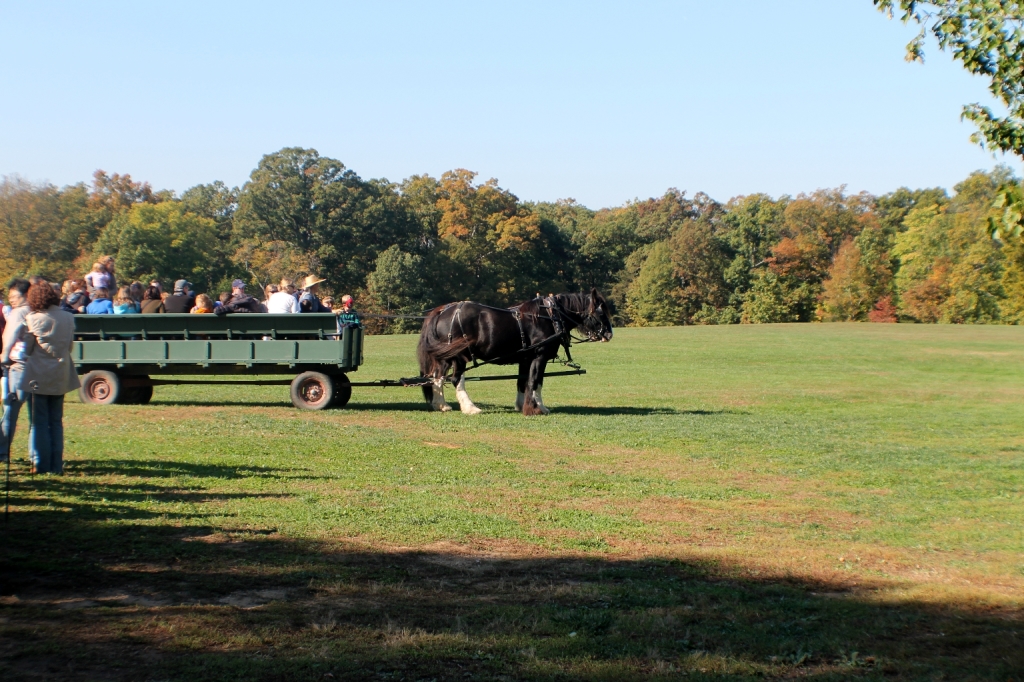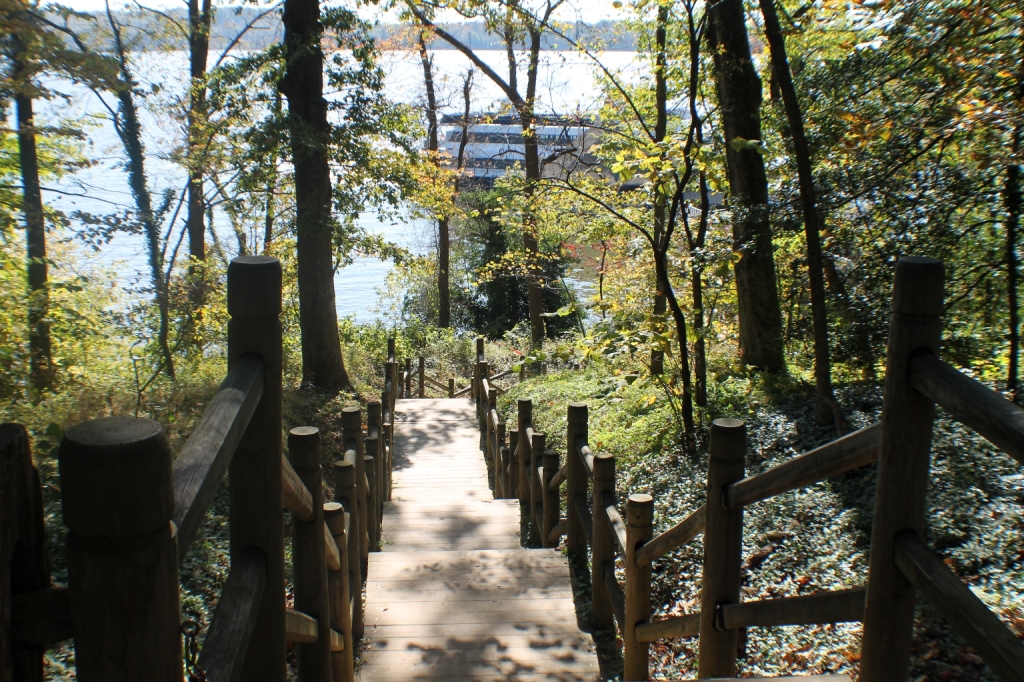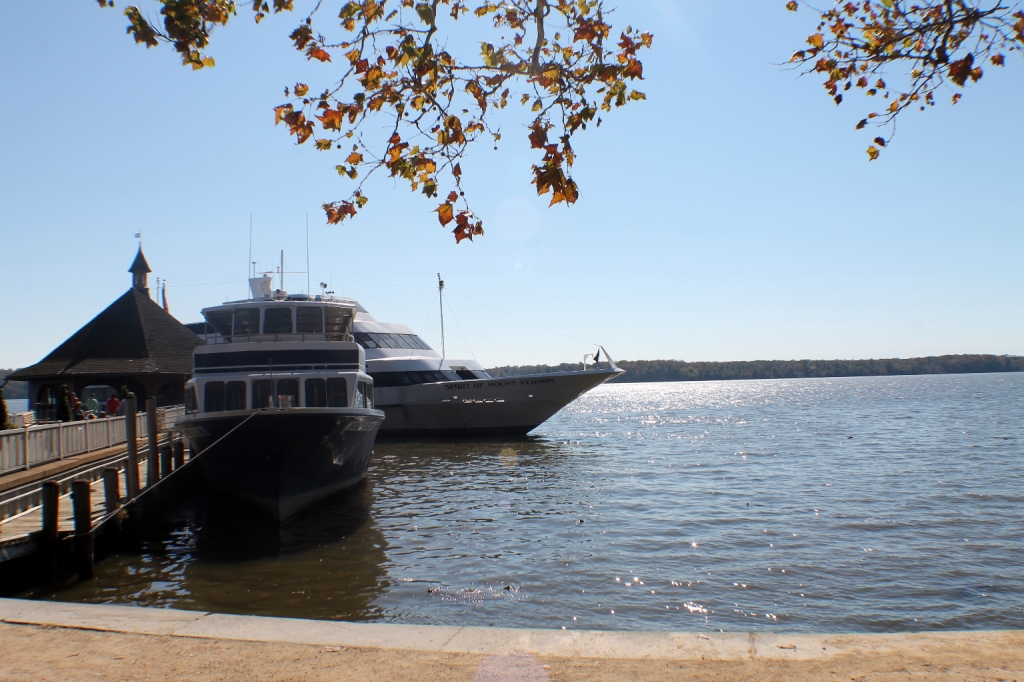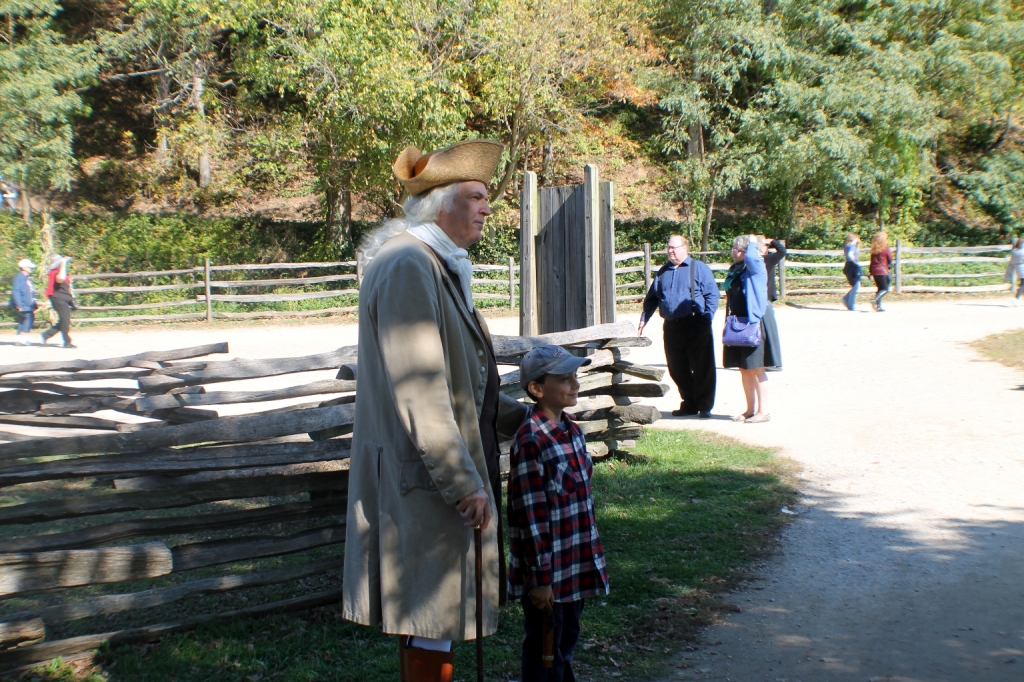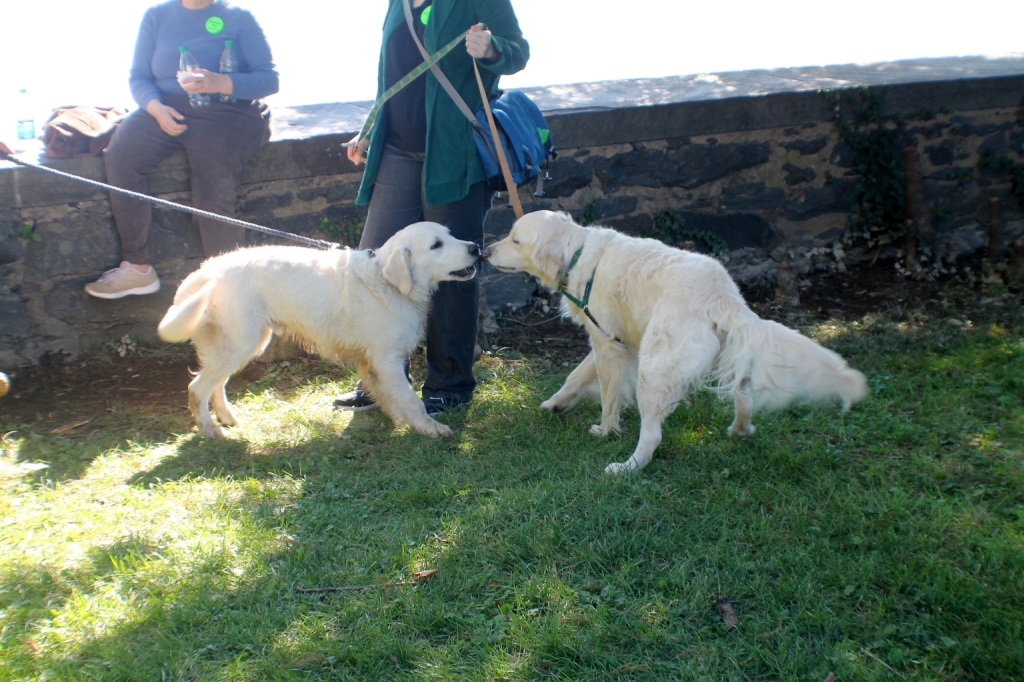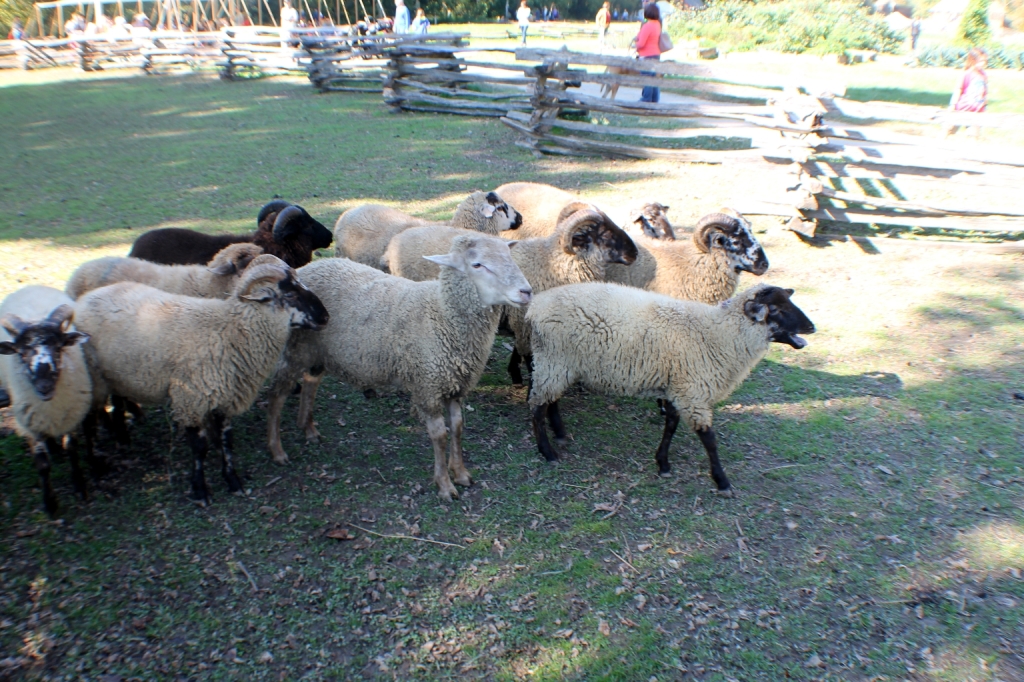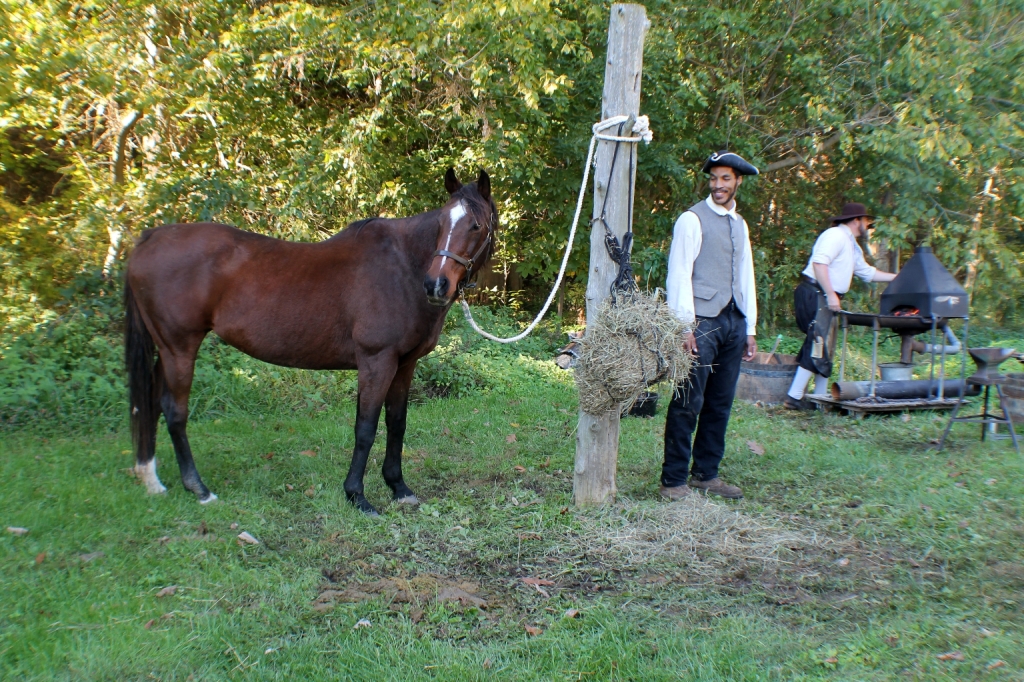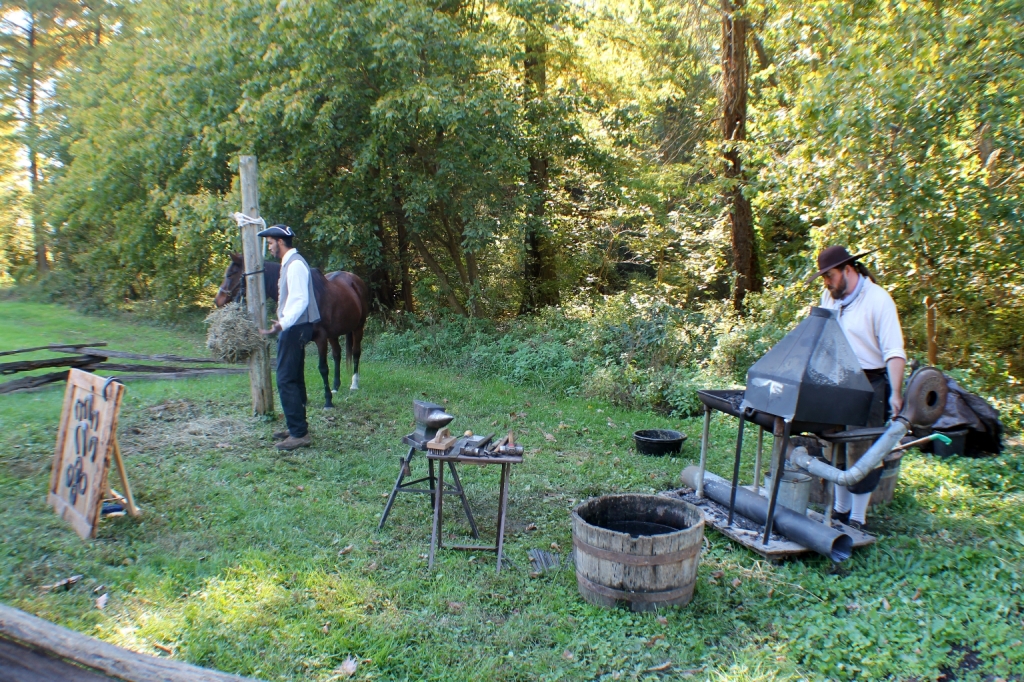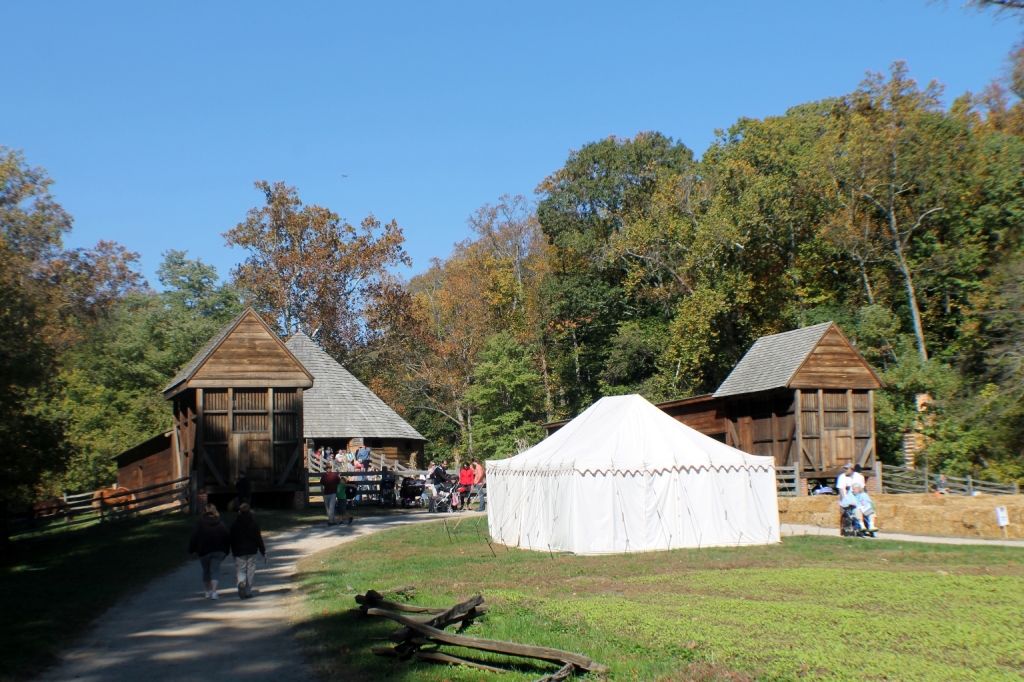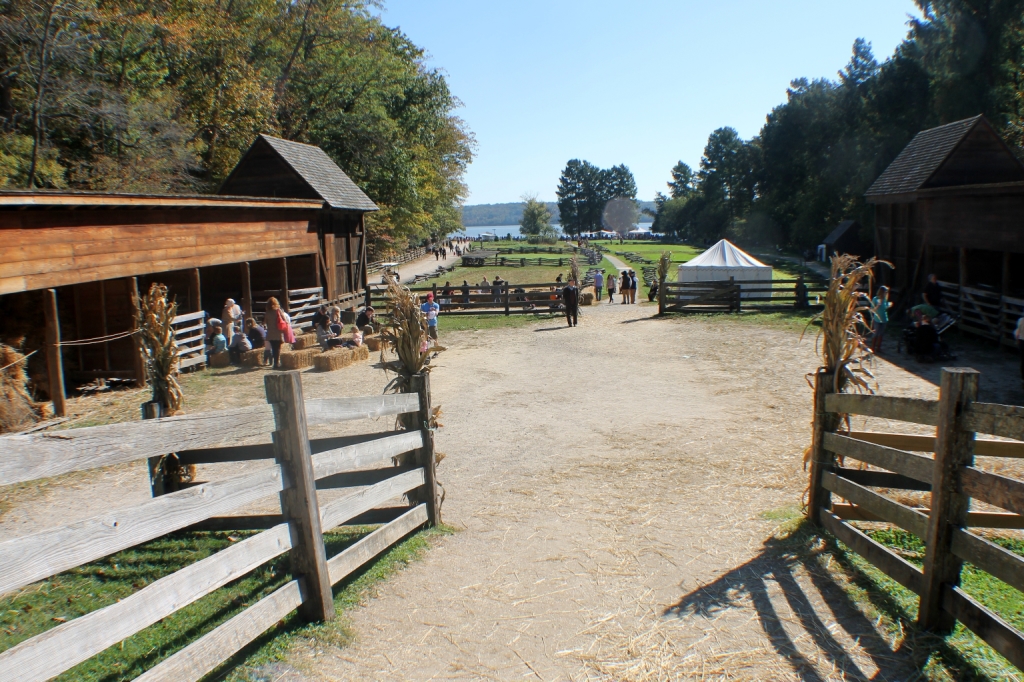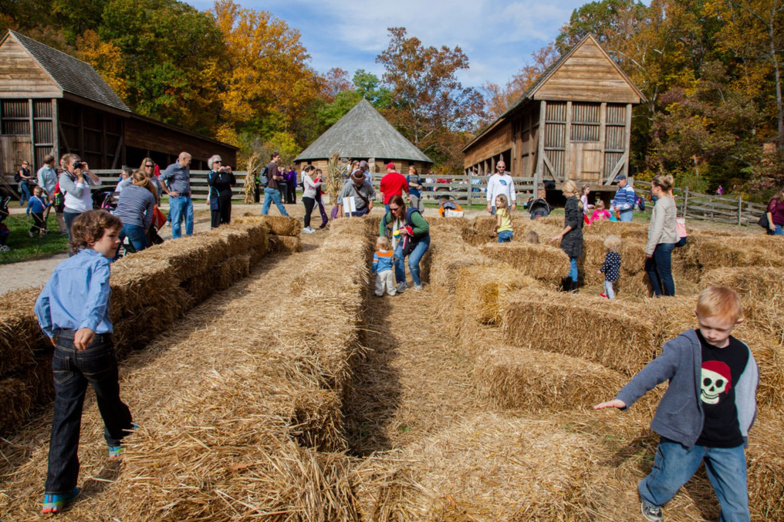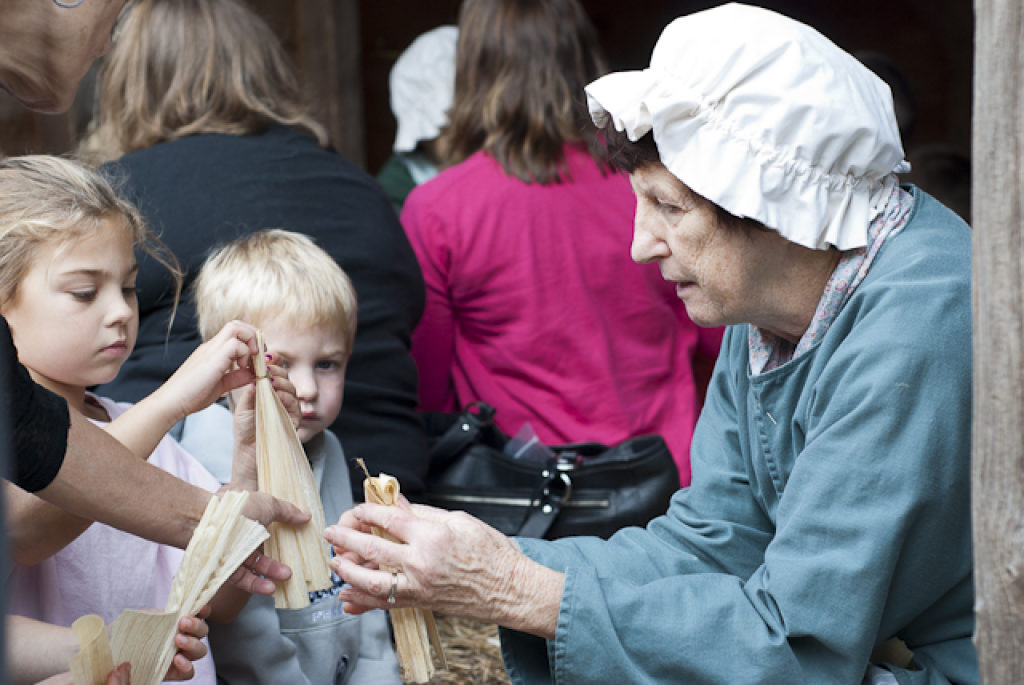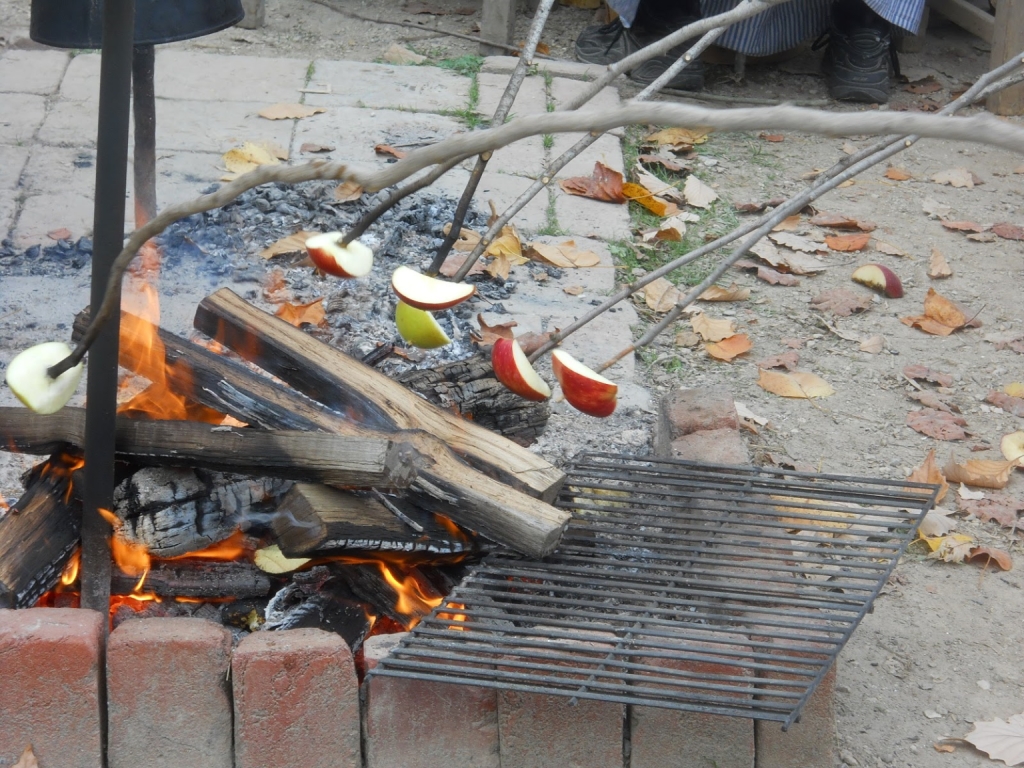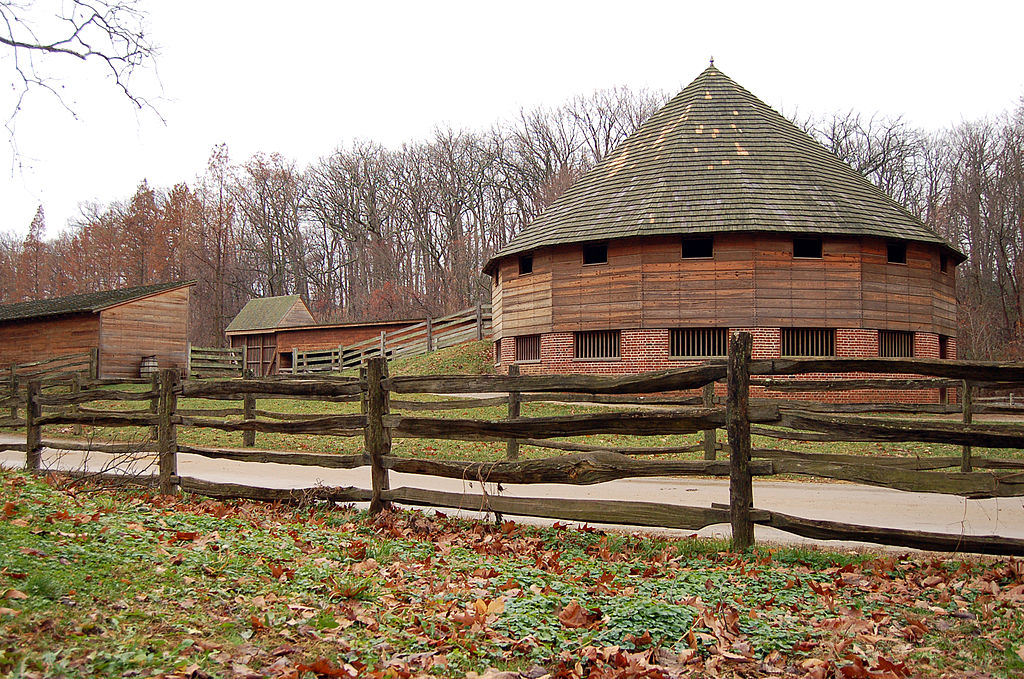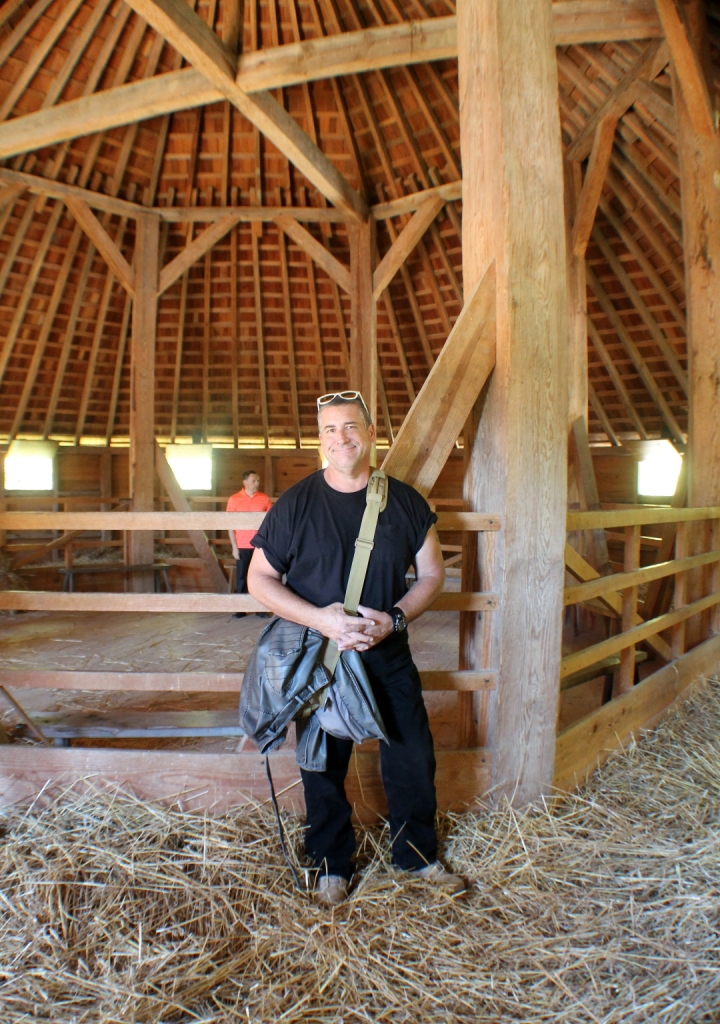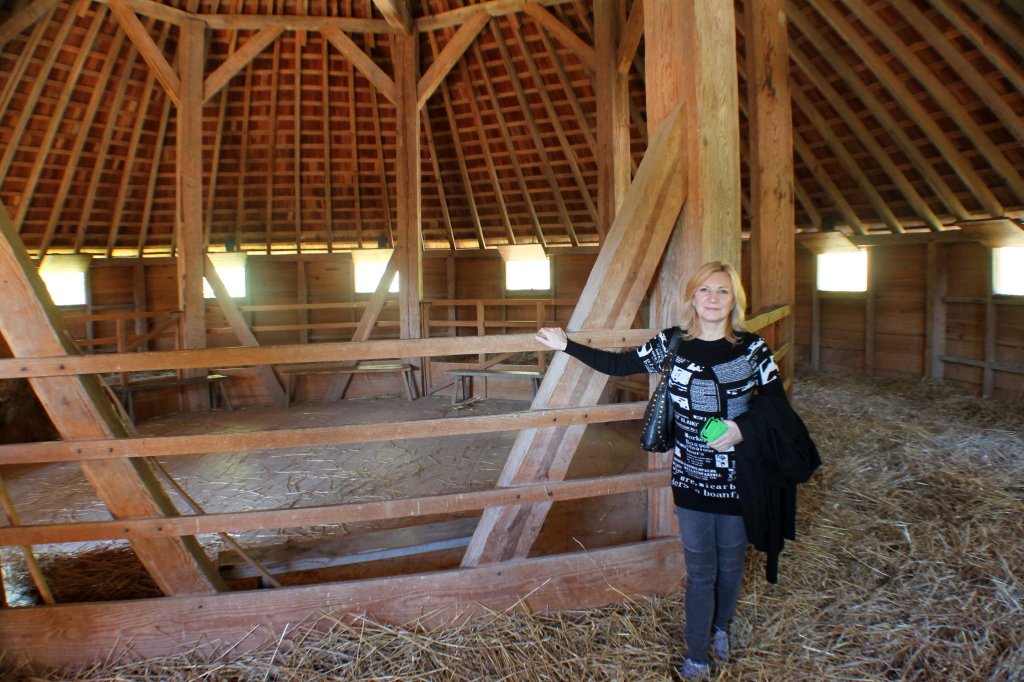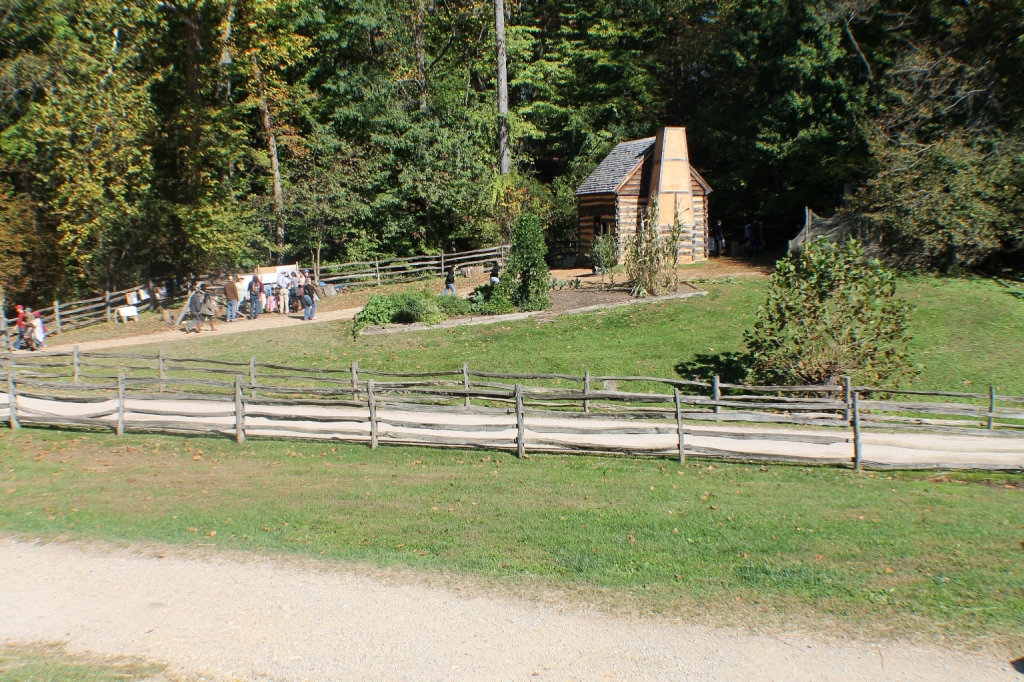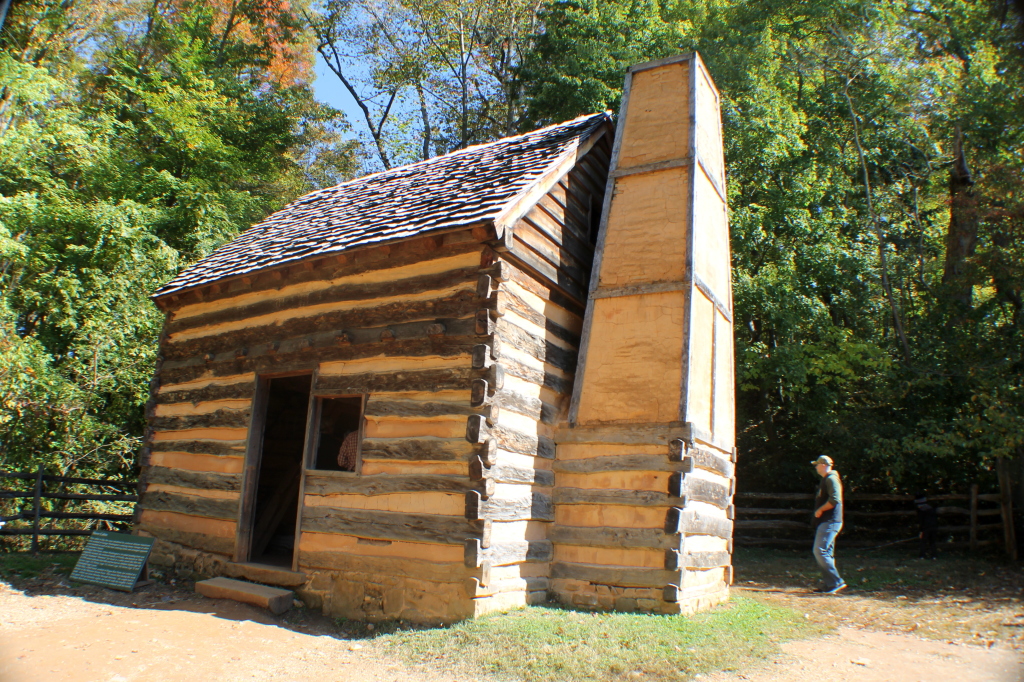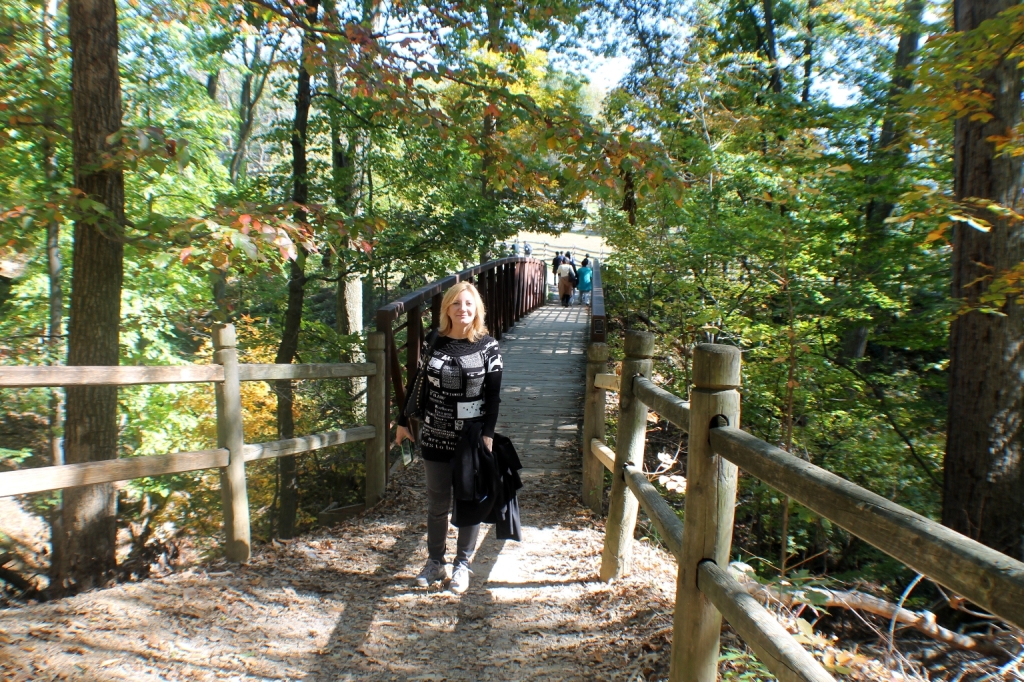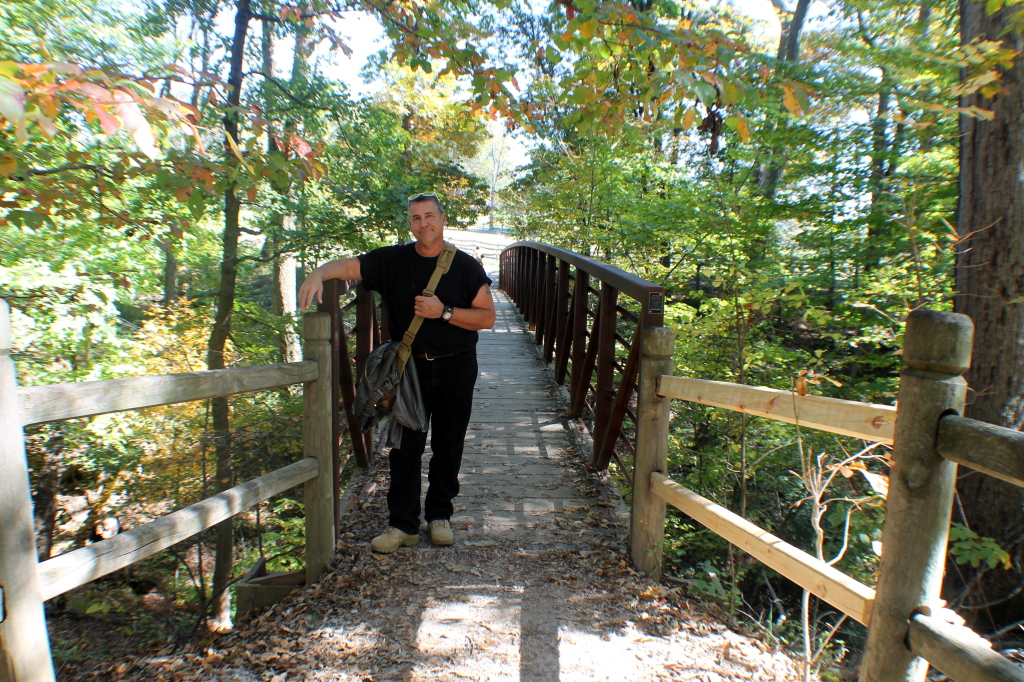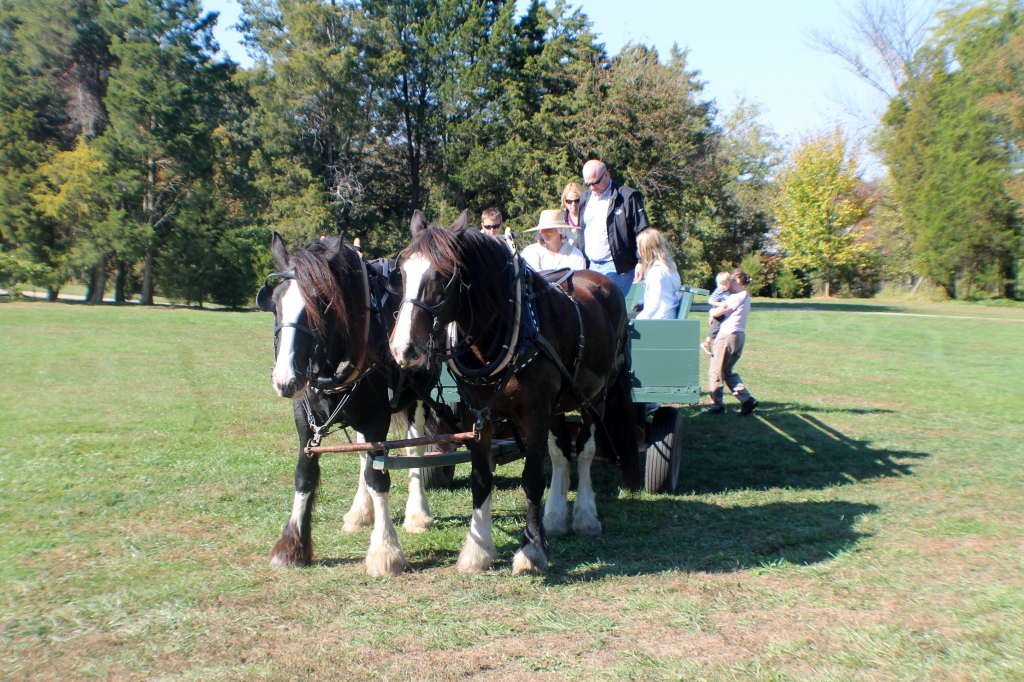To me, like most people, fall is the most beautiful season of the year, filled with colorful trees and an abundance of pumpkins. Therefore, there is a variety of places in the DMV (DC, Maryland, Virginia) offering fall harvest celebrations. Dave and I chose to visit Mt. Vernon in Virginia, home to the nation’s first president, George Washington.
We enjoyed our visit to the Mt. Vernon estate on the 4th of July last year, but seeing this historical site during the fall months seemed like an ideal time. In fact, the Fall Harvest Family Days, which takes place on October 25 and 26, 2014 were a great opportunity. As soon as we went through the visitor center, we saw a wagon full of happy kids with their parents.
The estate was filled with the numerous Fall celebration events, but the main attraction was the Pioneer farm down at the river. It took about 20 minutes for us to get there following the wooden stairs and passing the Potomac River cruise ship.
By the way, Potomac River site-seeing was offering half-priced cruises from George’s dock during Mt. Vernon Fall Harvest Days.
Right at the farm’s entrance we met “General Washington” himself, who was gladly taking pictures with kids or anyone who expressed such a desire.
Fall Harvest Celebration here is a family oriented and a pet friendly event. Therefore, there were many owners with their lovely pets like in the picture below.
Mount Vernon was home to many sheep in George Washington’s time. His flock numbered from 600-1,000 sheep. Today, Mount Vernon raises Hog Island sheep, a rare breed that is native to Virginia and dates back to the 1600s. Hog Island is a barrier island off the Delmarva Peninsula where the sheep survived for hundreds of years until the Nature Conservancy purchased the island in 1974.
The sheep were dispersed to historic sites mostly in Virginia. While we are not sure this is the breed Washington raised, they resemble sheep found in the colonies in the 1700s. Due to the critically low numbers of these sheep, Mount Vernon is involved in a careful breeding program (from mountvernon.gov).
These sheep are so cute and friendly. I couldn’t resist to pet one of them. 🙂
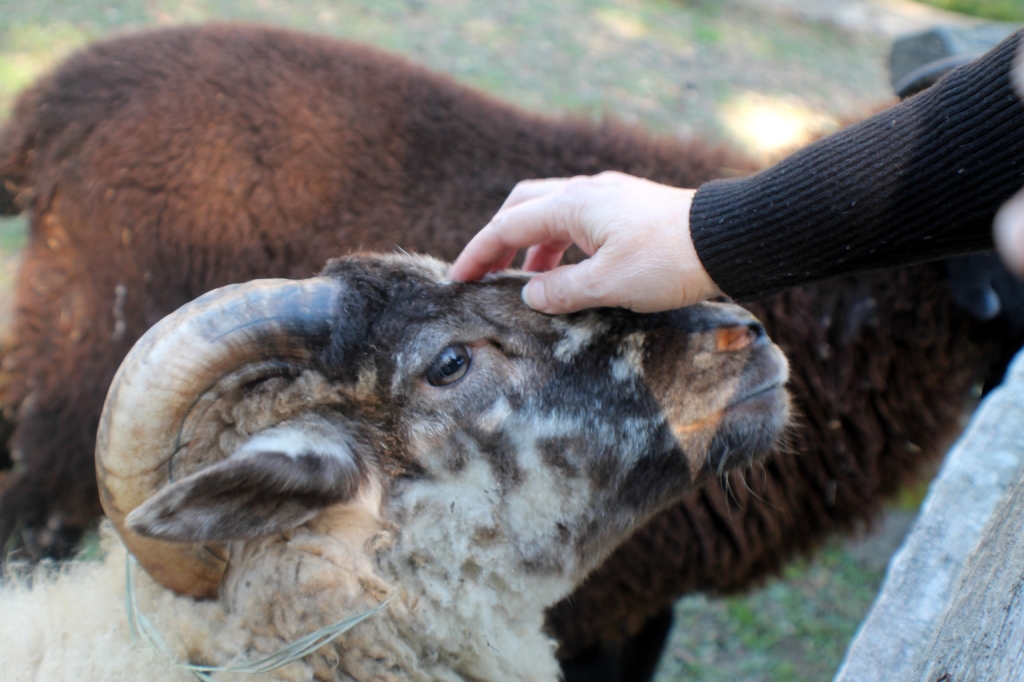
Walking on the farm was very enjoyable on this gorgeous, warm and sunny day.
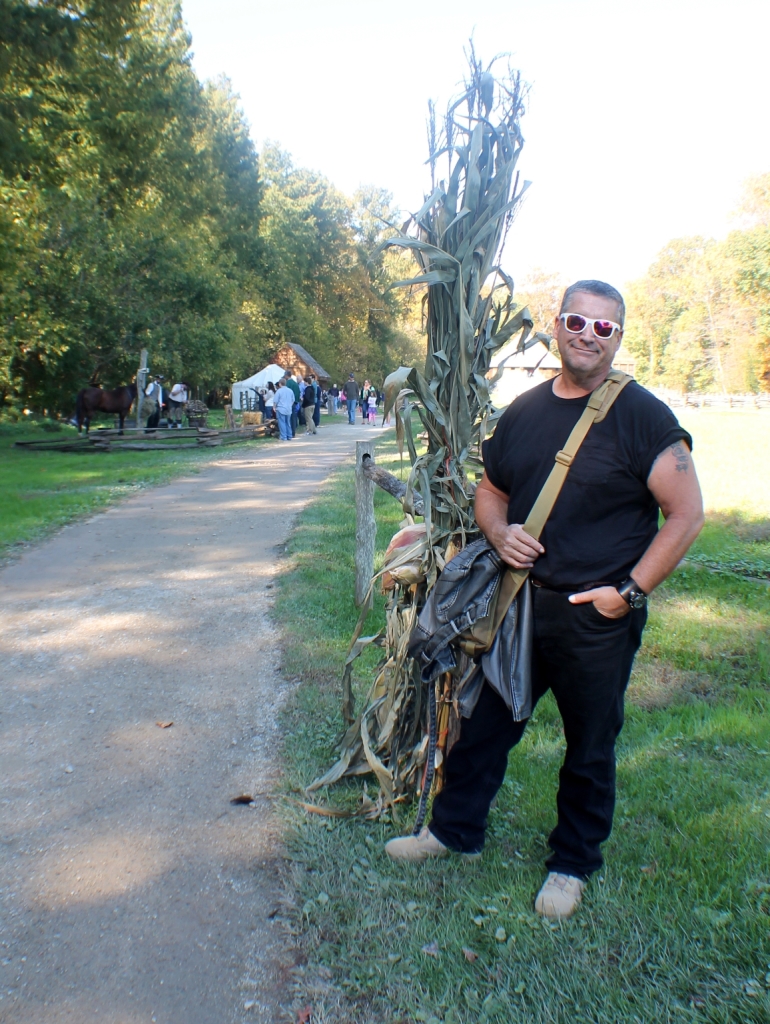
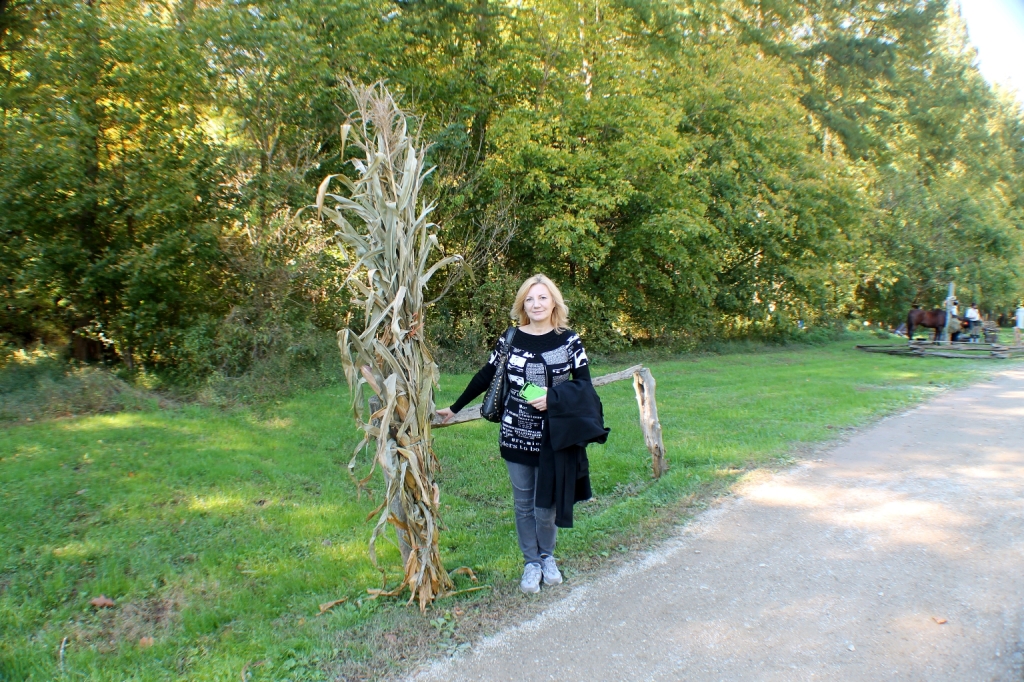
We passed the farrier demonstration (horseshoeing) on our way to the barn. Thomas Jefferson once referred to George Washington as one of the finest horseman of his time. As an avid horseman, Washington maintained a stable of fine, well-kept horses. They provided transportation, pulled carriages, worked in the fields and wheat treading barn, and were even used for recreation (from mountvernon.gov).
We noticed a crowd around 16-sided barn.
Many different activities were offered in the barn’s yard. The crowd looked happy and excited.
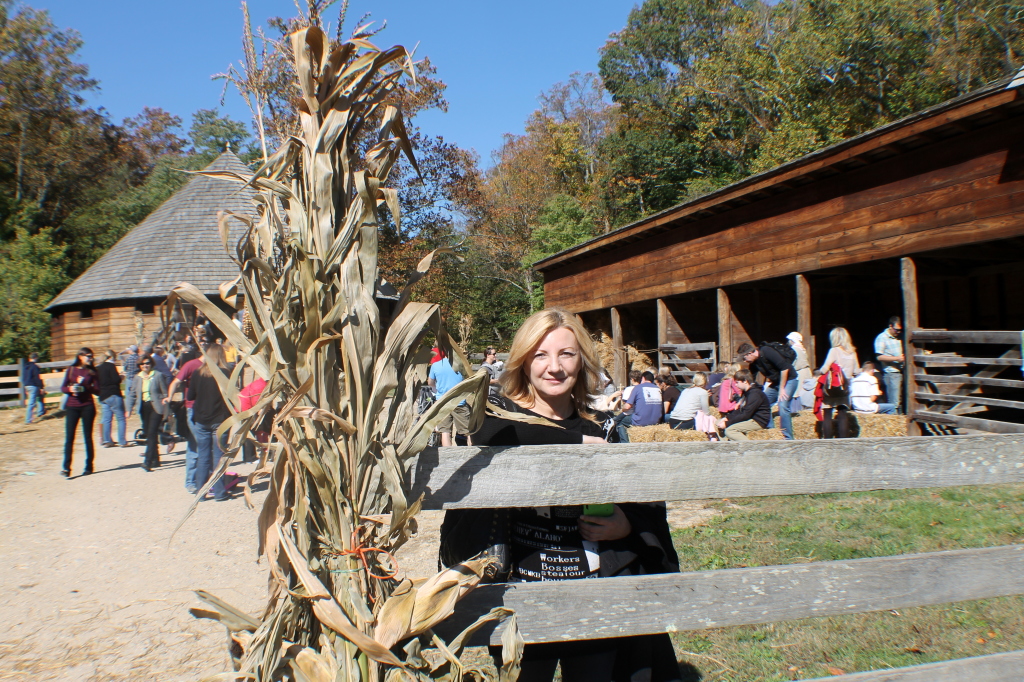
The Pioneer Farm was one of our favorite areas. It truly shows how innovative Washington was for his time. He experimented with crop rotation, fertilizers and plows. And Washington farmed wheat instead of tobacco–which was the cash crop of the day. A view of the farm from the barn’s yard.
There were a lot of activities for families and kids. Some of the most popular options included wagon rides, a straw bale maze, wheat treading in the 16-sided barn, blacksmithing demonstrations, 18th century dancing demonstrations, corn husk doll demonstrations and apple roasting. You can even take part in early-American games and listen to music that dates back to the early years of this country. There’s plenty to do for everyone in the family. Children enjoyed playing in the straw bale maze.
Costumed field workers demonstrate a corn husk doll making process. Children can create and take home their own cornhusk dolls.
Children participate in cooking by roasting their own apple slices on an open-fire.
Of course, it wouldn’t be a celebration without musicians.
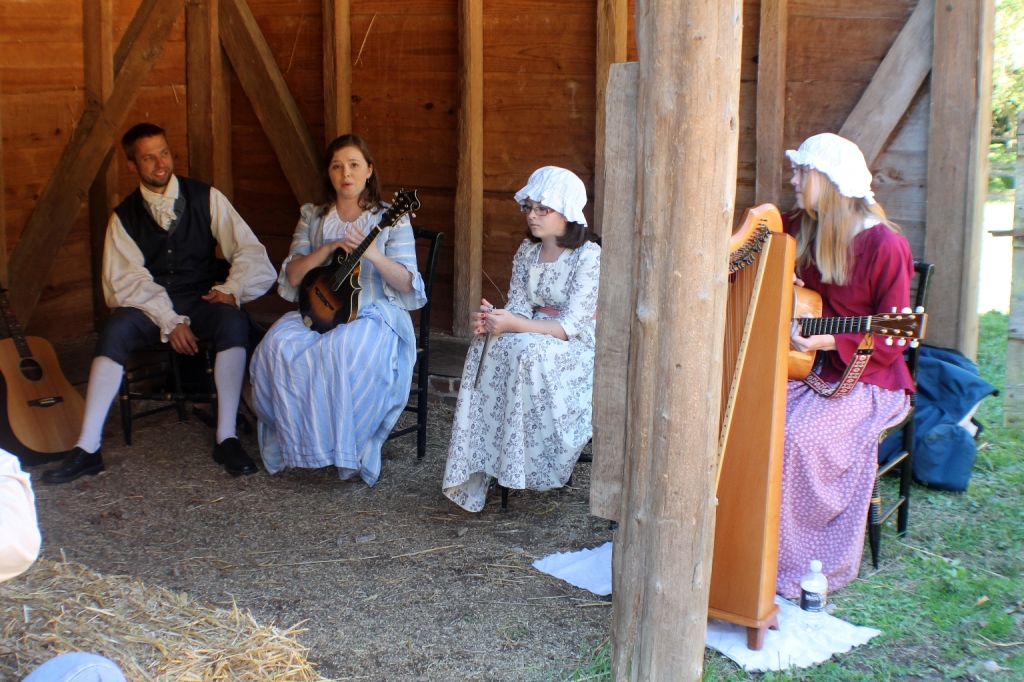
Beautifully shaped 16-sided barn (side view) from Wikimedia.
Us inside the barn. There was wheat treading demonstration inside, but we didn’t stay long there.
Across the street from the barn is a slave cabin. The slave cabins have been reconstructed, as well as the 16-sided barn and 4 acres were taken to create the Pioneer Farm, where you are shown how a plantation or farm would have operated in Washington’s time.
We bumped into the Slave Life Tour there. This 60-minute guided walking tour (free with the general admission ticket) highlights the lives and contributions of the enslaved community who built and operated Mount Vernon. In 1799, more than 300 slaves lived and worked on the five farms which made up Washington’s 8,000-acre plantation. The costumed actors impersonating slaves were telling stories about their daily life at Mount Vernon. We didn’t follow the tour, just looked around ourselves.
We visited the refurbished slave quarters and viewed reproduction clothing, tools, furniture, cookware, ceramics, toys, and personal accessories that demonstrate their experiences. The slave quarters were a bit of a sobering insight into our country’s past.
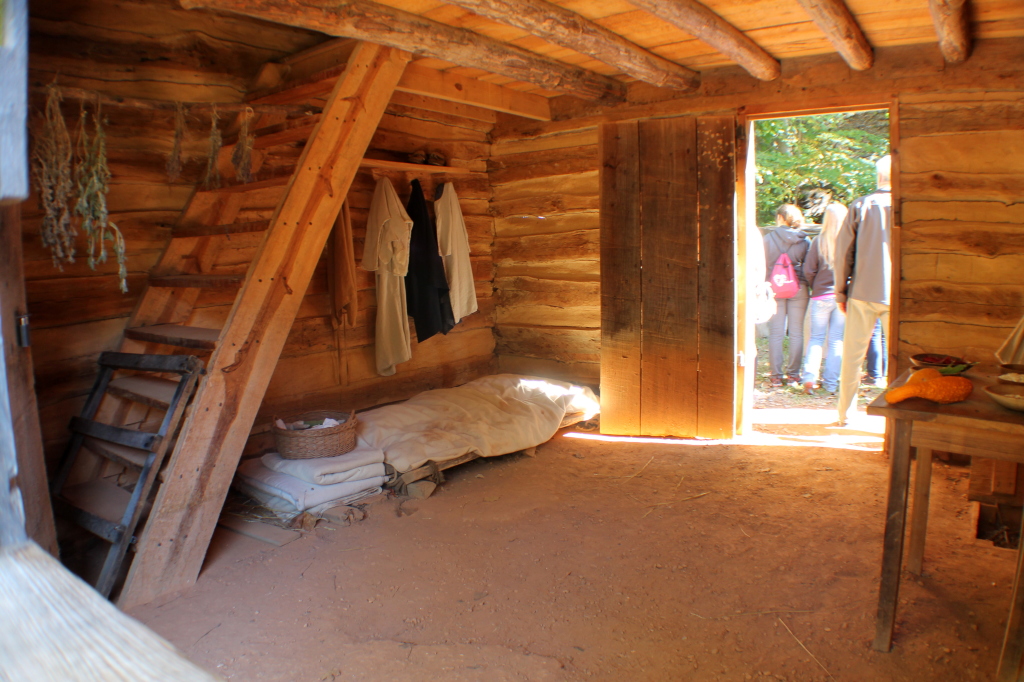
On the way to the estate through the path in the woods we crossed a cute bridge and stopped for the picture taking there.
We got back to the mansion area, where the wagon ride was still popular. 🙂 We spent the whole day at Historic Mount Vernon and enjoyed the fall colonial-themed activities there. Thankfully, weather was perfect this day.
